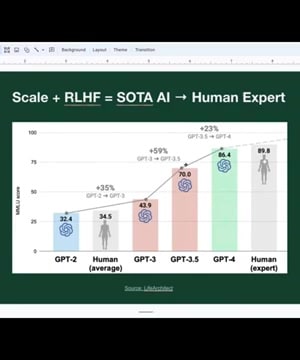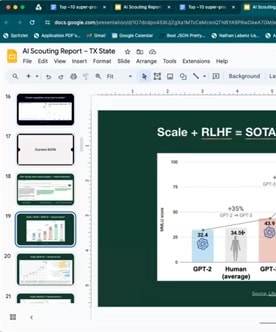Can AI diagnose diseases accurately?
Sources:
AI can diagnose diseases with increasing accuracy, rivaling and even surpassing human doctors in certain tasks. Here are some key insights based on current applications and research findings:
- Medical Exam Performance: AI has demonstrated high performance in passing medical licensing exams. Tools like Google's MedPalm achieved an 86% accuracy rate, closing in on expert performance levels 1 2 .
- Radiology and Imaging: AI models have shown high accuracy in interpreting medical scans. For example, in diagnosing COVID-19 from CT scans, AI achieved an accuracy rate of up to 96% 3 . Furthermore, AI has significantly outperformed biopsies in grading the aggressiveness of certain cancers, with one study showing AI's accuracy at 82% compared to biopsies' 44% 4 .
- Breast Cancer Detection: AI is used in breast cancer detection, aiding radiologists, especially those who do not specialize in breast imaging. However, it's important that AI algorithms are validated across diverse populations to ensure performance equity 5 .
- Alzheimer’s Detection: AI tools have also shown promise in detecting Alzheimer's disease, with some models achieving over 90% accuracy in identifying the disease from MRI scans 6 .
Despite these advancements, challenges remain, particularly in ensuring the data diversity and overcoming the need for extensive validation across different populations. Additionally, while AI excels in certain structured tasks, there are still concerns about issues like hallucinations or the generation of irrelevant information 2 .
Overall, AI is becoming an invaluable tool in medical diagnostics, significantly augmenting human capabilities, though it is best used alongside human expertise for the most reliable outcomes.
RELATED QUESTIONS


